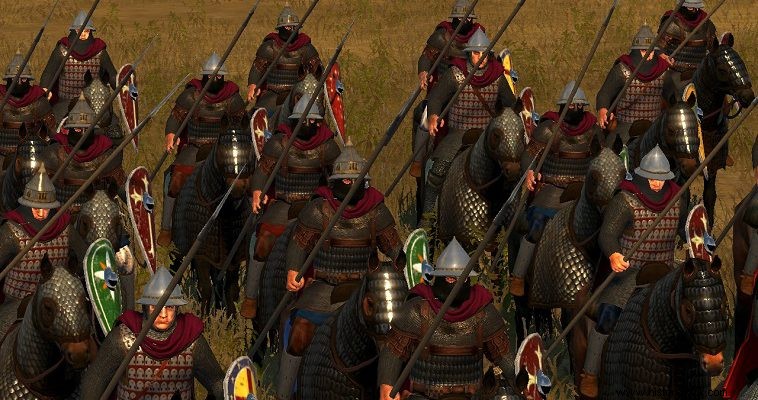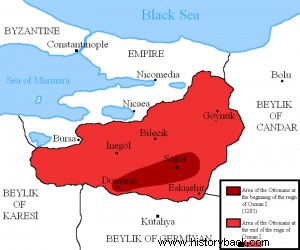
The Ottoman conquest of Byzantine Asia Minor was not the result of a Madizkert-type catalytic battle. After all, at the beginning of the 14th c. the Byzantine Empire had only very small military forces. However, the Ottomans did not have serious forces either. They were even an insignificant race that, thanks to Greek ineptitude, became a world power.
Sultan Osman took over as head of the Ottomans in 1282. Over the next two decades, the fanatical "Akintzides" (raiding light cavalry) savagely plundered Byzantine lands. When Byzantium reacted – campaigns of Philanthropinus and Terchaniotis – the Turks were defeated state by state.
However, both of these generals disappeared from the scene for political reasons and the Empire's Asia Minor possessions were left to their own devices.
The Turks could not capture the Greek fortified cities, but they plundered the villages, burned the fields and crops and destroyed everything except the walls. Fatefully the inhabitants of the cities and the refugees from the villages were starving.
In this way the Turks "besieged" Nicaea, Nicomedia and Bursa. In the spring of 1302 the co-emperor Michael I, son of the emperor Andronikos II, undertook a campaign in Asia Minor, at the head of a strong force of mercenaries and peasants. The Turks did not fall in love with him. Instead, they isolated him in Magnesia and as a result his army was disbanded as the mercenaries returned to Thrace and the natives to their homes...
Embarrassed, Michael returned to the city by ship. After this, Andronikos ordered the Great Etiariarch (chief of the guard) George Mouzalon to cross over to Asia Minor and help the besieged Nicomedia. Muzalonas had only 2,000 men, 1,000 Byzantine and 1,000 Alan mercenaries.
The Alans had shown their intentions not to engage with the Turks during Michael's campaign as well. Nevertheless, in the absence of other forces, they were made available to Mouzalonas.
The Byzantine force crossed into Asia Minor and moved towards Nicomedia. But in the plain of Vafeos, near the city, 5,000 Turks, Ottomans and others were waiting for him. The outnumbered Turks immediately attacked. It was July 27, 1302.
The Byzantines fought. But not the Alans. Fatefully, the Byzantines, outnumbered by 5:1, were defeated and forced to retreat, fleeing for safety to the fortified Nicomedia. New mistakes of the Byzantines allowed them, a little later, to cross over to Europe as well.

